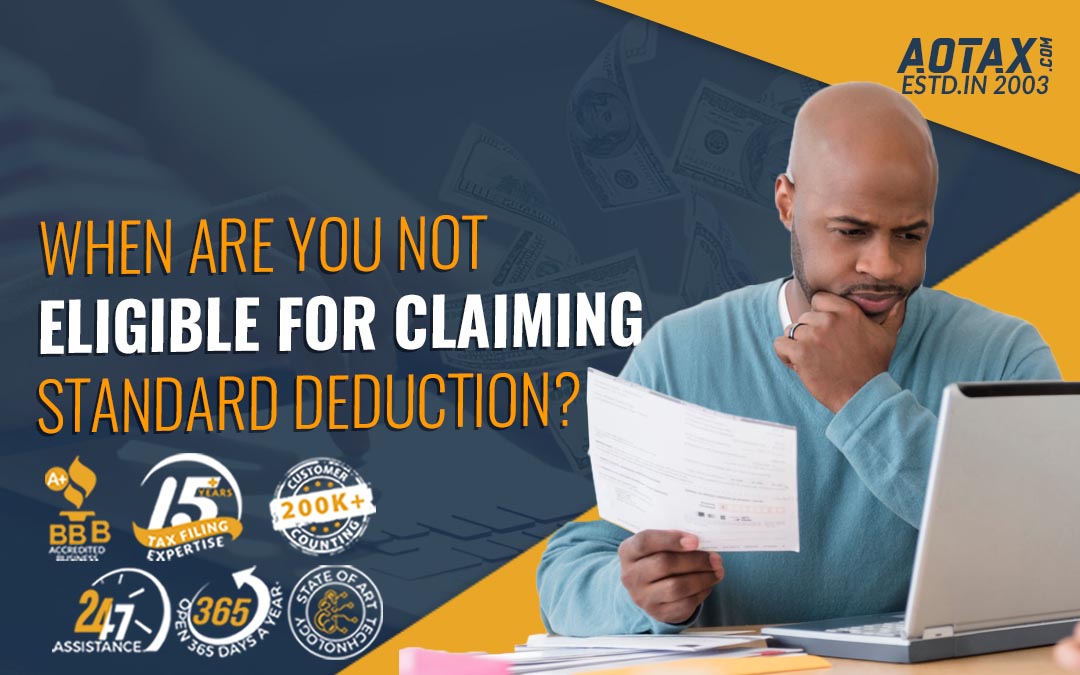What is Standard Deduction all about?
Standard Deduction is meant to ensure that there is at least some income of an individual which is not subject to any income tax. In simple terms, the standard deduction can be said to be a specific amount which reduces your amount of income on which tax is being imposed. It is the flat amount which the tax system lets you deduct from your taxable income with no question asked about it. Usually, your standard deduction would depend upon the tax filing status for which you qualify. Standard deductions are subject to increase every year due to inflation.
Your standard deduction would consist of the sum of your basic standard deduction available and any extra standard deduction for which you qualify due to your age or any physical disabilities. You’re filing status such as your income, whether you are 65 years old or more than that, you are blind or not can affect the standard deduction which you can avail. According to the norms of the IRS, you have an option of either using the standard deduction or itemize your deduction. You cannot avail both at the same time, it is possible to either claim your standard deduction or itemize your deduction at a particular instant of time.
Itemized deductions are certain expenses that are allowed by the IRS for deduction from your taxable income. This can include the amount which you had paid for state tax, local tax, sales tax, real estate tax, personal property taxes, mortgage interest, etc. Also, you can include gifts given for charity and a particular part of the amount you paid for your medical or dental expenses. By itemizing deductions on Schedule A of the Form-1040, you would be able to reduce your taxes. However, it is less complicated to claim your standard deductions as compared to claim the itemized deduction.
How can you claim Standard Deduction?

Claiming Standard Deduction is less complicated and can be done easily by using the Form-1040. In line 8 of your Form-1040, you can put down your Standard deduction or a combined amount of your itemized deductions.
Additional standard deduction
You are allowed for claiming additional standard deductions under the below mentioned scenario.
- You can be allowed for an additional standard deduction if your age is 65 years or older than that at the end of the tax year.
- If you are blind on the last day of the tax year, then you are eligible for claiming the additional standard deductions.
- In case you or your spouse are 65 years of age or more than that and are blind then you must claim your additional standard deduction.
When are you not eligible for claiming Standard Deduction?

Generally, the standard deductions are available for all but there are certain instances in which a taxpayer will not be eligible for claiming Standard Deduction.
- If you are married and are filing your tax return as married but filing it separately and your spouse claims the itemized deduction, then you are not eligible to claim Standard Deduction.
- If you have been a non-residential alien or a dual-status alien during a particular tax year, then you do not qualify for a Standard Deduction claim. However, this has an exception to it i.e. if you are a non-resident alien and get married to a US citizen or a resident alien then you can claim the standard deduction if you are filing a joint tax return and will choose to treat the nonresident alien as a citizen of the US.
- In case you are filing a tax return for a period that is less than 12 months due to a change in your annual accounting period, you cannot claim a Standard Deduction.
- An estate, trust, common trust fund or partnership entity is not eligible to claim Standard Deduction.
Conclusion
Hence, even though claiming standard deductions are simple to process but they can cost you additional charges. So, the IRS suggests you think carefully about the numbers and which one gives you more deductions before making the claim.


Recent Comments